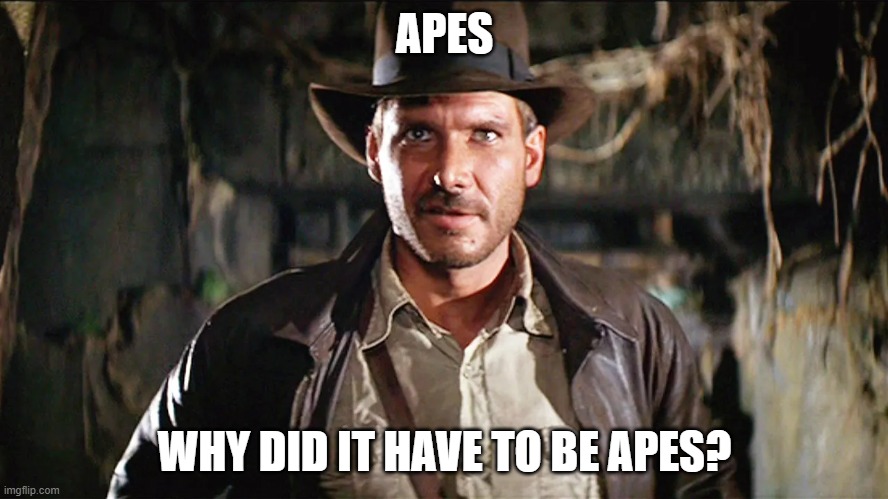
Posted on 08/04/2025 11:59:36 AM PDT by null and void
Seven Thousand Years...
.
That’s What I’m Thinking.
Ask Keith Richards. He was around.

It may be possible to record sounds such as speech or music on clay or metal cylinders or disks.
Kinda like the first gramophones.
Auto Warranty Renewal....
What books MUST be included?
Classics, i.e., Homer, Plato, etc.
Books covering the horrors of man, hopefully so they are not repeated. Example: books about the Third Reich, the holocaust (man's inhumanity to man).
What books should be explicitly excluded?
Comic books
Historical documents should be included. The Declaration of Independence, but as an American I am proudly biased.
Music, in some format, should be included. It is a universal language that evokes thought and emotion.
Better yet, ask Keith Richards to teach them...... he’ll still be around....
Maybe ebonics will be the lingua franca by then
Isaac Asimov's Foundation Trilogy should be one of the books...Interesting theory Null. Thanks for giving us something to think about.
There is a “doomsday” seed vault in Sweden - tunneled far into a mountain. Perhaps they would allow a 6-foot tall pyramid of information as well.
“Gee Frank - we have all of these containers with little things in them. What do you think they are? What should we do with them??”
Musk’s desire to colonize Mars stems from a similar realization that mankind will not survive as a single planet species.
Good idea.
Asimov, yes Foundation trilogy. I’m also going to include Asimov’s Soviet Science Fiction as a good overview of the types of science fiction over time.
Music would be very good, but the pre technological target audience could only get low quality sound. The few high tech high data density archives are much better suited. We will include maps to their locations for when they can read them.
Maybe musical notation and a xylophone and harmonica??
“We get a major disaster every 12,000 years with ‘minor’ disasters in the midpoints at 6,000 years.”
So first 0bama, then Biden? ;)
“I can help you for the next 3,000 years but I have other obligations after that.”
ROFLMAO! :
“Personal Note: My dad led the program at GE to build the Radioisotope Thermal Generators that power the two Voyager spacecraft! RIP, dad. Well done!”
So cool! My Dad and Grandpa were both Machinists and Grandpa worked on the bombs that hit Japan to end WW2, and Dad worked on the ‘super secret’ space rockets to the Moon when President Kennedy challenged them to get there in 10 years.
Sorta!
Great choice null...
Bridging Cultures:
Asimov’s introductions to the collections emphasized his hope that the works would help bridge the cultural gap between the US and the Soviet Union during the Cold War.
Exploring Themes:
The stories within the collections often tackled complex themes like the nature of humanity, the potential impact of technology, and the possibilities and dangers of social engineering, often through a utopian or dystopian lens.
“Golden Era” of Soviet SF:
The period from the 1960s to the 1970s is considered a “golden era” for Soviet science fiction, as writers were able to explore a wider range of ideas and topics, including those that might have been restricted in other genres, according to Seattle Worldcon 2025.
“The Heart of the Serpent”:
One notable story in More Soviet Science Fiction is “The Heart of the Serpent,” which challenges the common science fiction trope of suspicion and fear in first contact scenarios, instead imagining a more positive and collaborative encounter between different species, according to Seattle Worldcon 2025.
“Stone from the Stars”:
Another story, “Stone from the Stars,” explores a scenario where a giant brain arrives on Earth as a messenger from another planet, according to Seattle Worldcon 2025.
Beyond Space:
The stories in these collections often went beyond traditional space exploration themes, delving into philosophical questions, societal structures, and the potential consequences of technological advancements.
“The End of Eternity”:
Asimov’s own novel, The End of Eternity, is also relevant to this topic. While not part of the Soviet collections, it deals with themes of time travel and social engineering, which were also explored in some of the Soviet stories.
BKMRK.
Disclaimer: Opinions posted on Free Republic are those of the individual posters and do not necessarily represent the opinion of Free Republic or its management. All materials posted herein are protected by copyright law and the exemption for fair use of copyrighted works.